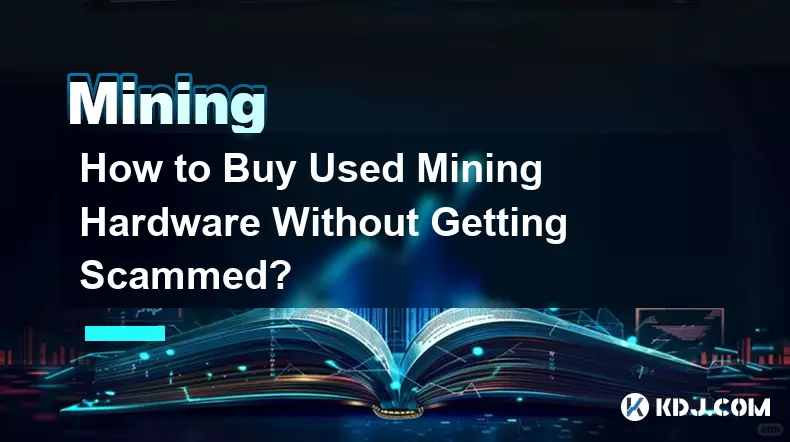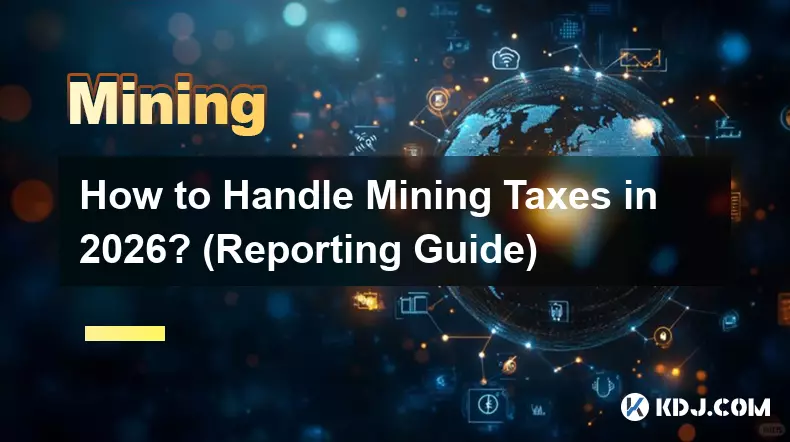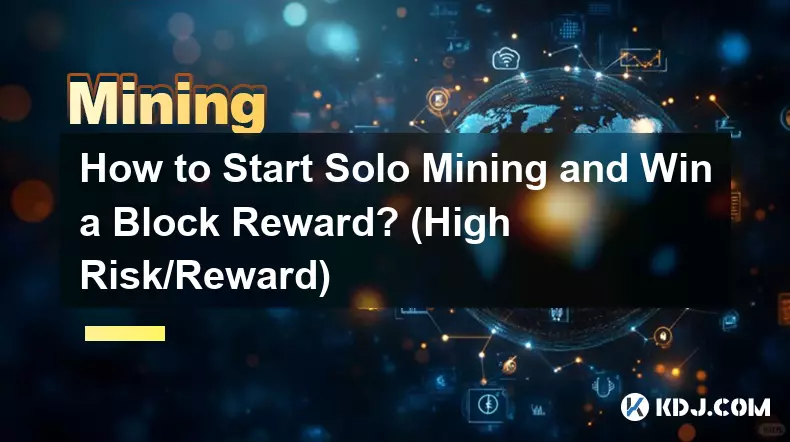-
 bitcoin
bitcoin $87959.907984 USD
1.34% -
 ethereum
ethereum $2920.497338 USD
3.04% -
 tether
tether $0.999775 USD
0.00% -
 xrp
xrp $2.237324 USD
8.12% -
 bnb
bnb $860.243768 USD
0.90% -
 solana
solana $138.089498 USD
5.43% -
 usd-coin
usd-coin $0.999807 USD
0.01% -
 tron
tron $0.272801 USD
-1.53% -
 dogecoin
dogecoin $0.150904 USD
2.96% -
 cardano
cardano $0.421635 USD
1.97% -
 hyperliquid
hyperliquid $32.152445 USD
2.23% -
 bitcoin-cash
bitcoin-cash $533.301069 USD
-1.94% -
 chainlink
chainlink $12.953417 USD
2.68% -
 unus-sed-leo
unus-sed-leo $9.535951 USD
0.73% -
 zcash
zcash $521.483386 USD
-2.87%
What are the Contracts for Automatic Reinvestment of Mining Yields?
Smart contracts automate mining reward reinvestment, boosting returns by converting earnings into assets without manual effort.
Jun 21, 2025 at 12:57 am

Understanding the Concept of Contracts for Automatic Reinvestment
Contracts for automatic reinvestment of mining yields are smart contracts designed to automate the process of reinvesting mining rewards back into the mining operation or related assets. These contracts operate on blockchain platforms, particularly those supporting programmable transactions such as Ethereum and Binance Smart Chain. The primary purpose is to optimize returns by continuously reinvesting earnings without manual intervention.
These contracts are typically coded with specific conditions that trigger reinvestment actions once certain thresholds are met. For example, when a miner receives a payout from a mining pool, the contract can automatically convert the reward into more mining equipment or tokens that contribute to future yield.
Smart contracts ensure transparency and eliminate human error in the reinvestment process.
How Do Automatic Reinvestment Contracts Work?
Automatic reinvestment contracts function through predefined logic embedded within their code. Once deployed on a blockchain, they monitor wallet balances or mining pool payouts associated with a user’s address.
When a specified amount of cryptocurrency is received—say, daily mining rewards—the contract executes a series of programmed instructions. These may include:
- Swapping the earned tokens for stablecoins or other cryptocurrencies.
- Purchasing additional mining contracts or virtual mining power.
- Allocating funds to staking pools or liquidity providers to generate further yield.
Each transaction is executed transparently and immutably on the blockchain, ensuring that no third party can alter the terms or manipulate the flow of funds.
The execution speed and accuracy depend on network congestion and gas fees at the time of the transaction.
Use Cases and Platforms Supporting Reinvestment Contracts
Several platforms have integrated automatic reinvestment features using smart contracts. Notable examples include:
- DeFi protocols like Yearn Finance (YFI) and Harvest Finance, which automatically compound yield farming rewards.
- Mining-as-a-Service (MaaS) platforms such as HashFlare or Genesis Mining, which offer automated reinvestment options for cloud mining contracts.
- Custom-built decentralized applications (dApps) where users can deploy personal reinvestment strategies via smart contracts.
These platforms allow users to set parameters such as reinvestment frequency, minimum threshold amounts, and preferred asset types for compounding.
Users must carefully configure these settings to avoid excessive gas costs or unintended token conversions.
Setting Up an Automatic Reinvestment Contract: A Step-by-Step Guide
Deploying or interacting with an automatic reinvestment contract involves several technical steps. Here’s how you can do it:
- Ensure you have a compatible wallet such as MetaMask or Trust Wallet connected to the desired blockchain network.
- Navigate to the platform offering the reinvestment contract, whether it's a DeFi app or a cloud mining service.
- Connect your wallet and authorize the contract to access your mining rewards or yield sources.
- Configure reinvestment rules including:
- Minimum balance required before reinvestment.
- Target asset for reinvestment (e.g., ETH, BTC, USDT).
- Frequency of reinvestment (daily, weekly, etc.).
- Confirm the settings and approve the initial transaction to activate the contract.
Once active, the contract will begin monitoring your income streams and execute reinvestment according to your preferences.
Always test with small amounts before committing large sums to any automated system.
Risks and Considerations When Using Reinvestment Contracts
While automatic reinvestment contracts can enhance profitability, they also come with risks:
- Smart contract vulnerabilities could lead to loss of funds if the code has bugs or is exploited.
- Market volatility may cause reinvestments during downturns, potentially reducing long-term gains.
- Gas fees on congested networks can eat into profits, especially if frequent small reinvestments occur.
- Liquidity issues may arise if the target asset lacks sufficient trading volume or market depth.
Users should conduct thorough research, read audit reports (if available), and consider diversifying reinvestment strategies across multiple contracts or platforms.
Diligent monitoring and periodic adjustments are essential to maintain optimal performance.
Frequently Asked Questions (FAQ)
Q1: Can I modify the reinvestment settings after deploying the contract?Yes, most platforms allow users to adjust reinvestment parameters such as thresholds, frequency, and target assets. However, changes usually require a new transaction and may incur gas fees.
Q2: What happens if my mining rewards drop below the reinvestment threshold?If the earned amount doesn’t meet the set minimum, the contract will not trigger a reinvestment. The funds will remain in your wallet until another reward brings the balance above the threshold.
Q3: Are there tax implications for automatically reinvested mining yields?Tax regulations vary by jurisdiction. In many countries, reinvested crypto earnings are still considered taxable events. It is advisable to consult a tax professional familiar with cryptocurrency laws.
Q4: How secure are automatic reinvestment contracts?Security depends on the contract’s code quality and the platform’s reputation. Always check for audits, community feedback, and whether the contract is open-source before use.
Disclaimer:info@kdj.com
The information provided is not trading advice. kdj.com does not assume any responsibility for any investments made based on the information provided in this article. Cryptocurrencies are highly volatile and it is highly recommended that you invest with caution after thorough research!
If you believe that the content used on this website infringes your copyright, please contact us immediately (info@kdj.com) and we will delete it promptly.
- Bitcoin Faces Identity Crisis as Speculators Flock to Prediction Markets and Ultra-Short Options
- 2026-02-02 00:30:06
- MGK and Jelly Roll Honor Ozzy Osbourne at Pre-Grammy Gala, Sparking Fan Frenzy
- 2026-02-02 00:50:02
- Litecoin Price Cracks 9-Year Floor Amidst Market Breakdown: What's Next for the OG Crypto?
- 2026-02-02 01:20:02
- Crypto News, Cryptocurrency Markets, Latest Updates: A Topsy-Turvy Start to 2026
- 2026-02-02 01:15:01
- New York Minute: LivLive Presale Ignites, While Solana Navigates Choppy Waters
- 2026-02-02 01:15:01
- Strategy Inc, Bitcoin, and Optimism: A Bold New Era in Digital Assets
- 2026-02-02 01:25:01
Related knowledge

How to Earn Passive Income with DePIN Mining? (New Trend 2026)
Feb 01,2026 at 12:40pm
Understanding DePIN Mining Mechanics1. DePIN mining relies on real-world infrastructure participation rather than computational hashing. Users deploy ...

How to Set Up a Quiet Mining Rig at Home? (Noise Reduction)
Feb 01,2026 at 11:00pm
Acoustic Enclosure Design1. Use rigid, dense materials such as MDF or acoustic-grade plywood for the enclosure walls to block mid-to-high frequency no...

How to Mine Bitcoin on Mac (M1/M2/M3)? (Software Tutorial)
Feb 01,2026 at 07:19pm
Understanding Bitcoin Mining on Apple Silicon1. Bitcoin mining relies on solving cryptographic puzzles using computational power, and Apple’s M1, M2, ...

How to Buy Used Mining Hardware Without Getting Scammed?
Feb 01,2026 at 08:00pm
Research the Seller's Reputation Thoroughly1. Check archived listings and feedback on platforms like Bitcointalk forums, Mining Hardware subreddits, a...

How to Handle Mining Taxes in 2026? (Reporting Guide)
Feb 01,2026 at 01:39am
Tax Classification of Mining Rewards1. Cryptocurrency mining rewards are treated as ordinary income at the fair market value on the date of receipt. 2...

How to Start Solo Mining and Win a Block Reward? (High Risk/Reward)
Feb 01,2026 at 06:40am
Understanding Solo Mining Mechanics1. Solo mining means operating a full node and attempting to solve cryptographic puzzles independently without join...

How to Earn Passive Income with DePIN Mining? (New Trend 2026)
Feb 01,2026 at 12:40pm
Understanding DePIN Mining Mechanics1. DePIN mining relies on real-world infrastructure participation rather than computational hashing. Users deploy ...

How to Set Up a Quiet Mining Rig at Home? (Noise Reduction)
Feb 01,2026 at 11:00pm
Acoustic Enclosure Design1. Use rigid, dense materials such as MDF or acoustic-grade plywood for the enclosure walls to block mid-to-high frequency no...

How to Mine Bitcoin on Mac (M1/M2/M3)? (Software Tutorial)
Feb 01,2026 at 07:19pm
Understanding Bitcoin Mining on Apple Silicon1. Bitcoin mining relies on solving cryptographic puzzles using computational power, and Apple’s M1, M2, ...

How to Buy Used Mining Hardware Without Getting Scammed?
Feb 01,2026 at 08:00pm
Research the Seller's Reputation Thoroughly1. Check archived listings and feedback on platforms like Bitcointalk forums, Mining Hardware subreddits, a...

How to Handle Mining Taxes in 2026? (Reporting Guide)
Feb 01,2026 at 01:39am
Tax Classification of Mining Rewards1. Cryptocurrency mining rewards are treated as ordinary income at the fair market value on the date of receipt. 2...

How to Start Solo Mining and Win a Block Reward? (High Risk/Reward)
Feb 01,2026 at 06:40am
Understanding Solo Mining Mechanics1. Solo mining means operating a full node and attempting to solve cryptographic puzzles independently without join...
See all articles










































































